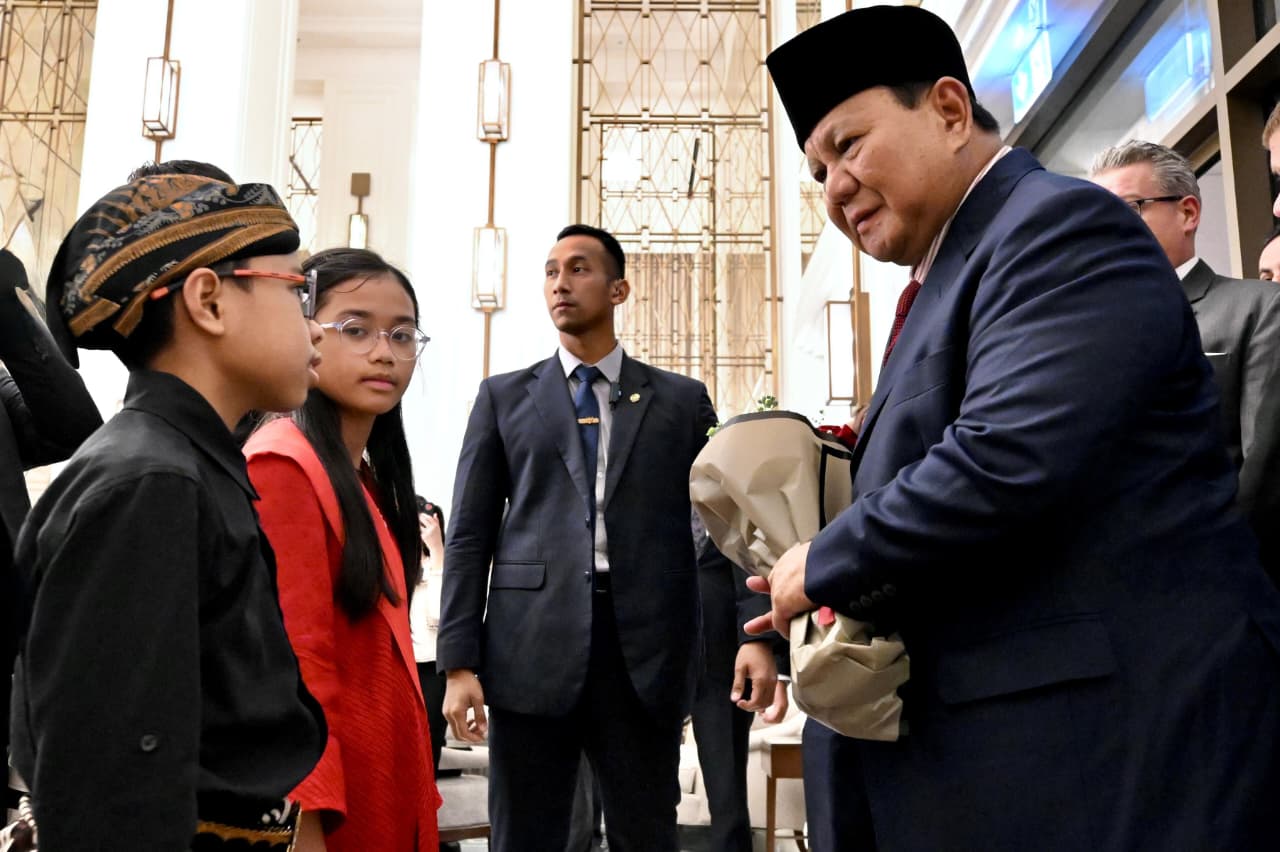Minister Urges Public to Report Violence Against Women, Children via SAPA 129

Minister of Women Empowerment and Child Protection (PPPA) Bintang Puspayoga speaks at Podkabs episode 3.
Minister of Women Empowerment and Child Protection (PPPA) Bintang Puspayoga urged the public to report acts of violence against women and children through Sahabat Perempuan dan Anak (SAPA) 129 call center service.
“It does not have to be the victim who reports it. When you see (and) hear (acts of violence against women and children), report it to SAPA 129,” the Minister said on the 3rd episode of Podkabs, an official podcast channel of Cabinet Secretariat, Friday (04/22).
SAPA 129 service can be accessed via hotline 021-129 or WhatsApp 08111-129-129. SAPA 129 has six types of services, namely public complaint service, victim outreach service, case management service, temporary shelter access service, mediation service, and victim assistance service.
In addition to hotline service and WhatsApp number, the Ministry will also receive reports through other media such as online forums, the National Public Service Complaints and Management System – the People’s Online Aspiration and Complaint Service or SP4N-LAPOR!, letters, and direct complaints.
The Minister stated that the service is a response to an additional implementation function as regulated in Presidential Regulation Number 65 of 2020, namely as the final referral service for women and children who are victims of violence, cases that require coordination at the national, cross-provincial, and international levels.
Bintang stated that the PPPA Ministry also distributed Special Allocation Funds (DAK) to 34 provinces and 216 regencies/cities for the implementation of non-physical programs for the development of women and children.
“They are approximately Rp101.7 billion in 2021 and Rp120 billion in 2022 for assistance in cases of violence”, she said.
The Minister underscored that violence cases against women and children are an iceberg phenomenon where many cases go unreported.
National Survey of Children and Adolescents’ Life Experience (SNPHAR) in 2021 shows that the prevalence of children aged 13-17 years who have experienced one or more types of violence in their lifetime decreased by 21.7 percent for girls and 28.31 percent for boys in three years. There are more girls experiencing violences than boys, she said.
Meanwhile, based on National Women’s Life Experience Survey (SPHPN) in 2021, the prevalence of physical and/or sexual violence against women aged 15-64 years by a partner and other than a partner has decreased by 7.3 percent over a period of 5 years. However, there is still an increase in the prevalence of sexual prevalence in the past year from 4.7 percent in 2016 to 5.2 percent in 2021.
“In the past year, cases of sexual violence committed by other than a partner have increased,” she stated.
The Government, the Minister said, worked hard to oversee the bill on sexual violence crime (RUU TPKS) until it was finally passed into law by the House of Representatives in a plenary session on April 12, 2022. It is expected that the law will be implemented and provide benefits especially for victims of sexual violence.
“In 2022, we are overseeing the ratification of the sexual violence crime bill,” she said.
As stated in the Ministry’s website, several breakthroughs are contained in the bill, including:
- Qualification of the types of sexual crimes, along with other crimes that are expressly stated as criminal acts of sexual violence as regulated in the provisions of other laws and regulations;
- Arrangement of comprehensive procedural law, starting from stages of investigation, prosecution, and examination in court proceedings while still paying attention to and upholding human rights and honor without intimidation;
- Recognition and guarantee of the victim’s right to treatment, protection, and recovery since the occurrence of the criminal act of sexual violence, which is the state’s obligation and is carried out in accordance with the conditions and needs of the victim; and
- Cases of criminal acts of sexual violence cannot be resolved outside of the judicial process, except for child perpetrators.
Restitution is also given to the victims by the perpetrators of the crime of sexual violence as compensation. If the confiscated assets of the perpetrators are not sufficient for the cost of restitution, the state will provide compensation to the victim in accordance with the court’s decision. (FID/MAY/RF/JW/AIT/UN) (FI/MMB)








